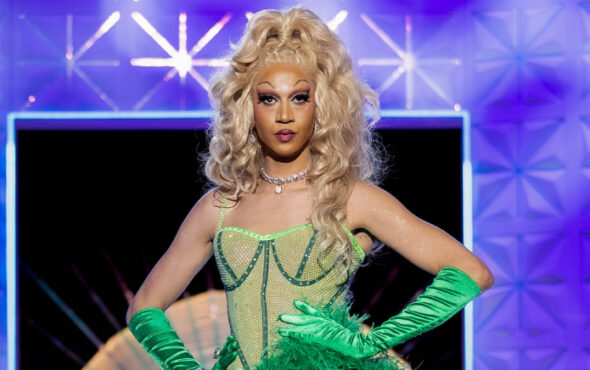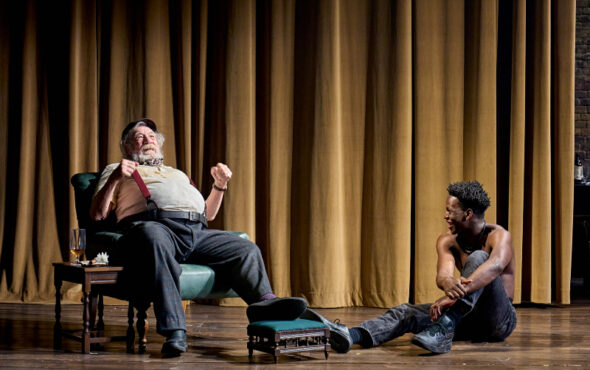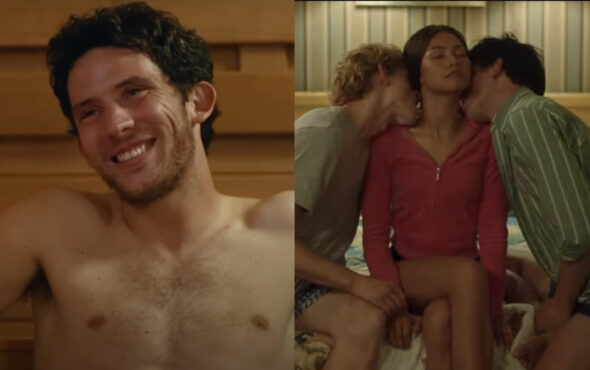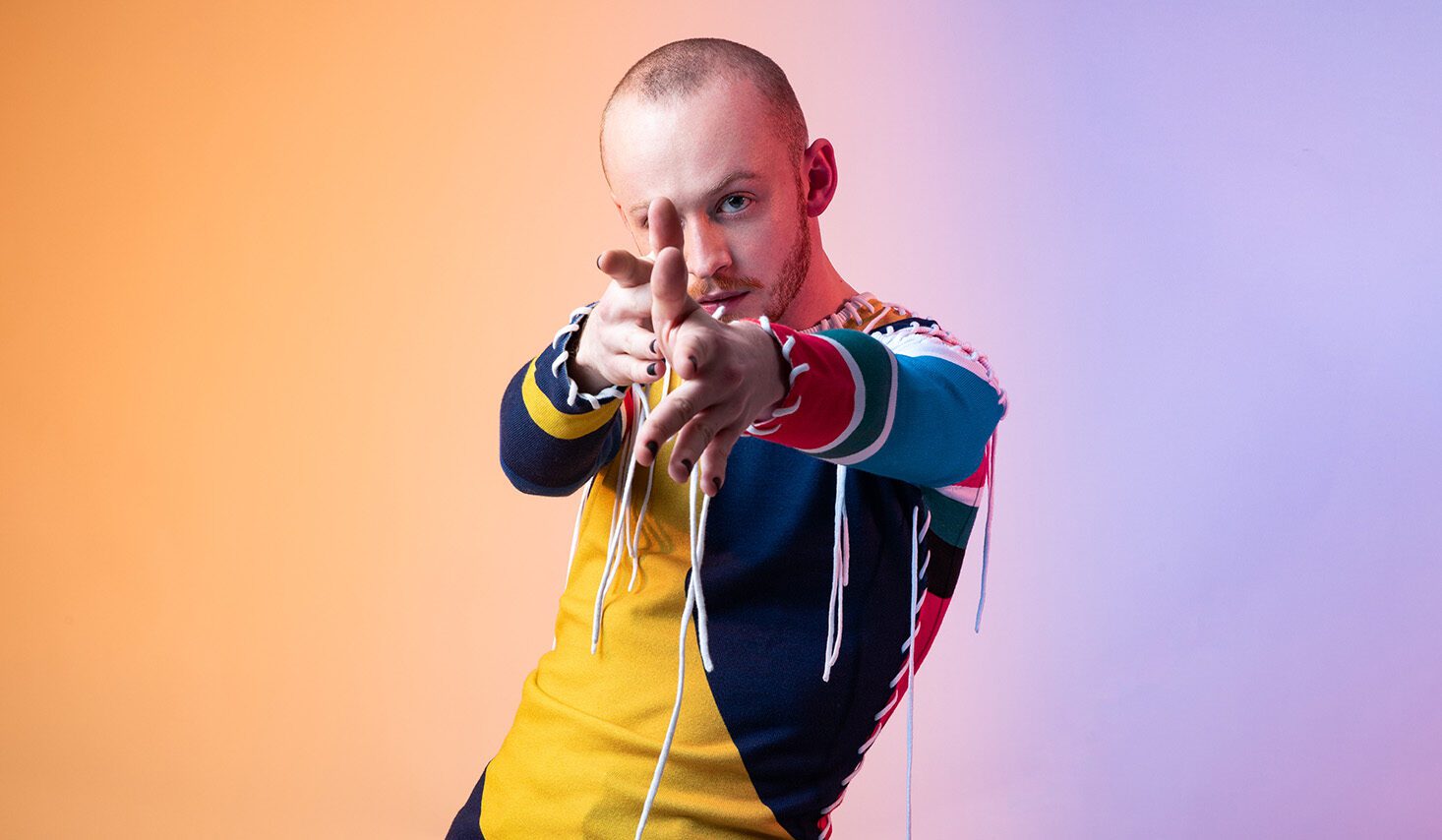
This month marks a big career moment for Scottish actor John Bell as he makes his stage debut in The Night Larry Kramer Kissed Me. The star – who’s best known for roles in Outlander, The Hobbit: Desolation of Smaug and Wrath of the Titans – will lead this multi-awarding winning off-Broadway hit as it opens in London for the first time.
The play, by David Drake, is a one-man show focusing on Bell’s character and his powerful reaction to a performance of Larry Kramer’s play The Normal Heart. His life is changed forever thanks to the power of theatre, with a call to arms for LGBTQ+ rights amidst the HIV/AIDS epidemic, it makes for powerful viewing.
Speaking with GAY TIMES, Bell talks about the power of queer storytelling, what this role means to him, and how it’s not always easy to be open about his own identity.
Talk to me about your stage debut. It’s a bit of an inception moment isn’t it, because your character goes to see Larry Kramer’s play The Normal Heart and then the play that we’re watching is the experience of your character as a result of watching that production?
Yeah, it’s a little meta! The character’s journey throughout the play is really defined by his experiences and theatre. It begins with his sort of first love of musicals and West Side, but it’s only when he goes to see a play, finally, that he finds his calling in activism. It’s a commentary on the power of plays to inspire people.
Do you find that there’s pressure – especially if you’ve got young queer audiences coming to watch you – to give them that same experience that your character has?
It was written in the 90s so there is actually quite a nostalgic element to this play as well that I think will appeal to an older queer audience. There’s a bit of a pressure there to make sure that a younger audience understands what we’re trying to put across. This is what we’re working through right now in the rehearsal period – what can we do to set this story out clearly? We go back and forth between different periods in this person’s life. So yeah, there’s a bit of pressure but it’s also a challenge and it makes it much more interesting to devise.
It’s one of the longest running solo hit shows off-Broadway, so do you feel excited about being able to bring it to London? And why is now the right time to tell this story?
I’ve always been fascinated by history and different time periods and delving into that, so to go to that place in history and tell that story from this person’s perspective, it’s really interesting. I think when the play was originally on in 1995, there was still a lot of ‘what’s going to happen’ for queer people. Now we know that the future isn’t as bleak. Let’s not go into this whole fairytale that everything’s going to be better, but let’s keep it as we think it should be told. It’s a time capsule. There’s great respect in that. The play isn’t here to kind of say this is where we still are, it’s to say this is where we were and we know what the future is like now because we’re living in it but like let’s have respect for what happened.
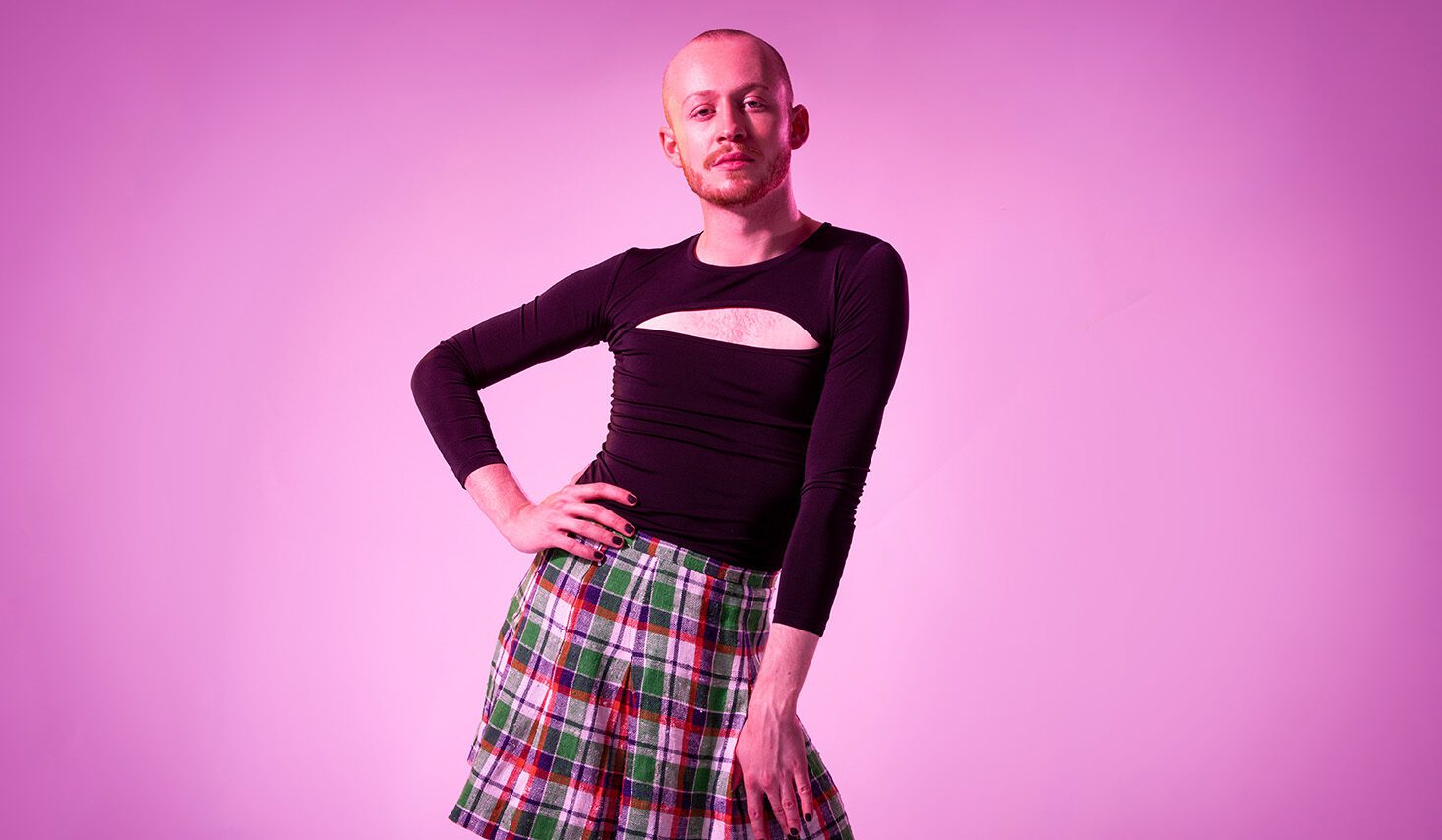
As an actor, do you prefer to play queer-centred roles, as this is very different to the character that you play in Outlander?
I would say hands down this is my most exposing character that I’ve done. I mean, it’s a one-man show, so it is just me out there on that stage, you know, holding the audience’s attention for the hour. It’s playing a gay character which I haven’t done before, and it’s dealing with the topics that are incredibly emotional and and deep and run deep in our community. So I found this creatively to be one of the most fulfilling things I’ve done recently. I think there was a period of time when I was like 16/17 where I wasn’t quite comfortable enough to talk about my sexuality. I remember when I first joined Outlander, they did ask me ‘Would you be comfortable doing LGBTQ+ focused press’ and at the time I thought, ‘that’s not what this show is really about’. I had a bit more living to do before I felt able to talk on these things with the sincerity and knowledge that I want. Now feels like a good time to talk about these things.
Do you think there’s merit in queer actors portraying queer characters? Or do you think it doesn’t matter?
What I want to say is you’re an actor and you can play whatever you want. At the core of what acting is, it’s that you’re never really truly yourself. But I’m also keenly aware of the power of representation. The power in that is undeniable and you would like to think that it was a queer actor that was playing that part because there’s truth in that.
It feels like you’ve been able to really own your decision in portraying this queer character because it was your free choice, and not just something you felt expected or compelled to do because you are queer yourself? Would you agree?
I completely agree. I think it’s great that we’re here now and that it’s a decision and a choice that I can make because I would say, go back 10 years and it was a completely different story for an actor. There was this pressure to stay in the closet, which I just don’t feel as much anymore. People can go and watch Outlander where I’m playing such a different role and such a different character and they go, ‘oh damn, he’s quite a good actor.’ Looking back, acting was a way to escape some of the demons. I grew up in this industry – I started acting when I was eight years old. My first ever job that I did on Doctor Who, John Barrowman was on that set completely being himself, and as an eight-year-old there was a part of me that certainly still understood that there was something going on that made me different from everyone else. There was still social pressure there. I felt there were still times when I was younger and trying to wish the gay away, but luckily I’ve grown up in a time where actually that part of me has been celebrated. We’ve been celebrated.
What advice would you give to an aspiring queer actor that wants to embrace the escapism of acting?
Embrace the escapism and learn and watch the people around you that have gone through it. Those are your inspirations. Those are your role models. Don’t feel any pressure to be something that you’re not. Just take your time and discover who you are because I think when we’re queer actors and we’re playing all these different characters, you sort of start to think ‘Who am I amongst all these people? I’m playing all these different parts and I can relate to them all but at the end of the day, who am I?’
The Night Larry Kramer Kissed Me runs from 3 February – 26 February 2022 at the New Wimbledon Theatre in London
